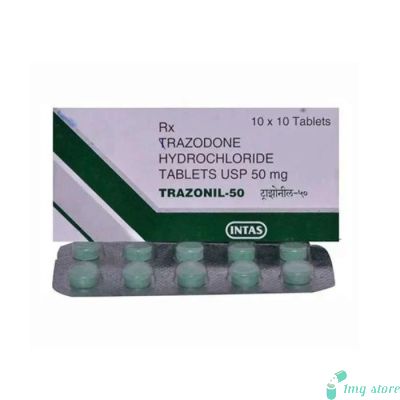Xanax Tablet, also known by its generic name Alprazolam, is a medication commonly prescribed for the treatment of anxiety disorders and panic disorder. It belongs to a class of drugs called benzodiazepines, which work by enhancing the effects of a neurotransmitter called gamma-aminobutyric acid (GABA) in the brain.
Xanax tablets are available in different strengths, typically ranging from 0.25 mg to 2 mg. The tablets are usually taken orally and come in various shapes and colors, depending on the manufacturer. Xanax is a prescription-only medication, meaning it can only be obtained with a valid prescription from a healthcare professional.
When used as directed, Xanax can help alleviate symptoms of anxiety and panic attacks by promoting relaxation and reducing excessive nervousness. It works relatively quickly, with its effects usually felt within 30 to 60 minutes after ingestion. The duration of its effects can vary, typically lasting for a few hours.
It is important to note that Xanax should only be taken under the guidance of a healthcare professional and according to the prescribed dosage. Misuse or abuse of Xanax can lead to dependence, addiction, and other adverse effects. Abruptly stopping the medication can also result in withdrawal symptoms, so it is essential to gradually reduce the dosage under medical supervision when discontinuing its use.
Before starting Xanax treatment, it is crucial to inform your healthcare provider about any existing medical conditions, medications, or supplements you are taking, as well as any history of substance abuse. Xanax may interact with certain medications or exacerbate certain conditions, so your healthcare provider will assess the suitability of this medication for your specific situation.
It is strongly advised to follow the prescribed dosage, avoid alcohol consumption while taking Xanax, and refrain from operating machinery or driving until you understand how the medication affects you, as it can cause drowsiness and impair coordination.
If you experience any concerning side effects or have questions about Xanax, it is best to consult your healthcare provider for further guidance and clarification. They can provide personalized information based on your medical history and determine the most appropriate course of treatment for your anxiety or panic disorder.
Alprazolam, commonly known by its brand name Xanax, offers several potential benefits when used under appropriate medical supervision:
Anxiety relief: Alprazolam is primarily prescribed for the treatment of anxiety disorders. It can help alleviate symptoms such as excessive worry, restlessness, irritability, and tension. By enhancing the effects of GABA, a neurotransmitter that promotes relaxation, alprazolam can provide a calming effect and reduce feelings of anxiety.
Panic disorder management: Alprazolam is also effective in treating panic disorder, a condition characterized by recurrent and unexpected panic attacks. It can help reduce the frequency and severity of panic attacks, as well as the anticipatory anxiety associated with them. Alprazolam's rapid onset of action makes it particularly useful in managing acute panic episodes.
Sedation and sleep improvement: Alprazolam has sedative properties that can aid in the management of sleep disturbances. By promoting relaxation and reducing anxiety, it may help individuals with insomnia fall asleep faster and improve the overall quality of sleep.
Muscle relaxation: Alprazolam's muscle relaxant effects can be beneficial for individuals with conditions involving muscle tension or spasms. It can help relieve muscle stiffness and promote relaxation.
Adjunctive treatment for certain medical conditions: Alprazolam may be used as an adjunctive treatment in specific medical conditions, such as depression, agoraphobia, social anxiety disorder, and certain forms of epilepsy. It is important to note that alprazolam is typically used in combination with other therapies and medications for these conditions, and its use should be carefully monitored by a healthcare professional.
It is important to remember that alprazolam should only be used as prescribed by a healthcare professional. The benefits of alprazolam should be carefully weighed against potential risks, such as the risk of dependence, tolerance, and withdrawal symptoms. It is recommended to have regular follow-up appointments with your healthcare provider to assess the effectiveness and safety of alprazolam treatment.
When using alprazolam (Xanax), it is essential to be aware of the following precautions:
Prescription and medical guidance: Alprazolam should only be taken under the supervision of a healthcare professional and with a valid prescription. It is important to follow the prescribed dosage and not exceed it without consulting your doctor.
Allergies and hypersensitivity: Inform your healthcare provider if you have any known allergies or hypersensitivity to alprazolam or any other benzodiazepines. Allergic reactions can range from mild to severe and may include symptoms such as rash, itching, swelling, dizziness, or difficulty breathing.
Medical conditions: Notify your healthcare provider about any existing medical conditions, including but not limited to respiratory problems, liver or kidney disease, history of substance abuse or addiction, glaucoma, depression, or any other mental health disorders. These conditions may affect the suitability and dosage of alprazolam for your specific situation.
Interactions with medications and substances: Alprazolam can interact with other medications, including prescription drugs, over-the-counter medications, and herbal supplements. Inform your healthcare provider about all the medications you are taking to avoid potential interactions that could result in adverse effects or reduced efficacy.
Pregnancy and breastfeeding: If you are pregnant, planning to become pregnant, or breastfeeding, discuss the risks and benefits of using alprazolam with your healthcare provider. Alprazolam can potentially harm the developing fetus or pass into breast milk, so alternative treatments or dosage adjustments may be necessary.
Driving and operating machinery: Alprazolam can cause drowsiness, dizziness, and impaired coordination. It is important to avoid activities that require alertness, such as driving or operating heavy machinery until you know how alprazolam affects you personally.
Alcohol and other depressants: Alcohol and other substances that have a depressant effect on the central nervous system can enhance the sedative effects of alprazolam. It is strongly advised to avoid alcohol consumption while taking alprazolam to prevent excessive sedation, dizziness, and potential complications.
Dependency and withdrawal: Alprazolam has the potential for dependency, especially with prolonged use or higher dosages. Abruptly stopping alprazolam or reducing the dosage without medical guidance can lead to withdrawal symptoms such as rebound anxiety, insomnia, irritability, tremors, and seizures. It is important to work closely with your healthcare provider to gradually taper off the medication when discontinuing its use.
Alprazolam (Xanax) has several uses in medical practice. Here are some common uses of alprazolam:
Anxiety disorders: Alprazolam is primarily prescribed for the treatment of various anxiety disorders, including generalized anxiety disorder (GAD), panic disorder, and social anxiety disorder. It helps reduce excessive worry, tension, and other symptoms associated with anxiety.
Panic disorder: Alprazolam is often used to manage panic disorder, a condition characterized by recurrent and unexpected panic attacks. It can help alleviate the frequency, severity, and anticipatory anxiety associated with panic attacks.
Insomnia associated with anxiety: Due to its sedative properties, alprazolam may be prescribed to help individuals with insomnia that is related to anxiety. It can aid in promoting sleep by reducing anxiety and inducing relaxation.
Adjunctive treatment for depression: In some cases, alprazolam may be used as an adjunctive treatment for depression when anxiety symptoms are present alongside depressive symptoms. It can help alleviate anxiety-related symptoms while the primary depression treatment takes effect.
Agoraphobia: Alprazolam may be used as part of the treatment plan for individuals with agoraphobia, a condition characterized by fear and avoidance of situations or places that may trigger panic attacks or make escape difficult. It can help manage the anxiety associated with agoraphobic situations.
Short-term management of anxiety symptoms: Alprazolam may be used on a short-term basis to manage acute anxiety symptoms, such as before a medical procedure or in situations of severe anxiety. However, its use is generally limited to short durations to minimize the risk of dependence and addiction.
It's important to note that alprazolam should be used under the guidance of a healthcare professional and according to the prescribed dosage. The specific use and duration of treatment may vary based on individual circumstances and the healthcare provider's assessment.
Alprazolam (Xanax) can cause certain side effects, and it is important to be aware of them. Common side effects of alprazolam may include:
Drowsiness and sedation: Alprazolam can cause drowsiness and sedation, making you feel sleepy or less alert than usual.
Dizziness and lightheadedness: Some individuals may experience dizziness or feelings of lightheadedness while taking alprazolam.
Cognitive and motor impairment: Alprazolam can impair cognitive function, including memory and concentration. It may also affect coordination and balance, leading to motor impairment.
Slurred speech: Alprazolam can cause slurred speech or difficulty articulating words clearly.
Changes in appetite: Alprazolam may affect appetite, leading to an increase or decrease in food intake.
Dry mouth: Some individuals may experience dryness in the mouth while taking alprazolam.
Constipation: Alprazolam can cause constipation in some individuals.
Changes in libido: Alprazolam may affect sexual desire or performance in some individuals.
Changes in mood: Some people may experience mood swings, irritability, or changes in emotional state while taking alprazolam.
Withdrawal symptoms: Abruptly stopping alprazolam or reducing the dosage too quickly can lead to withdrawal symptoms, such as rebound anxiety, insomnia, irritability, tremors, and seizures.
It is important to note that not everyone will experience these side effects, and their severity can vary from person to person. If you experience any concerning or persistent side effects while taking alprazolam, it is important to contact your healthcare provider for further evaluation and guidance.
Q: What is alprazolam used for?
A: Alprazolam is primarily used for the treatment of anxiety disorders, panic disorder, and as an adjunctive treatment for certain medical conditions such as depression and social anxiety disorder. It is a medication that helps relieve symptoms of anxiety and promote relaxation.
Q: How does alprazolam work?
A: Alprazolam belongs to a class of drugs called benzodiazepines. It works by enhancing the effects of gamma-aminobutyric acid (GABA), a neurotransmitter in the brain that has a calming effect. By increasing GABA activity, alprazolam helps reduce excessive anxiety and promote a sense of calmness.
Q: Is alprazolam addictive?
A: Yes, alprazolam can be addictive, especially with prolonged use, higher dosages, or misuse. It is classified as a Schedule IV controlled substance due to its potential for abuse and dependence. It is important to follow the prescribed dosage and avoid using alprazolam for longer than recommended to minimize the risk of addiction.
Q: How long does it take for alprazolam to start working?
A: Alprazolam is known for its relatively fast onset of action. Most individuals start experiencing its effects within 30 to 60 minutes after taking the medication orally. The duration of its effects can vary but typically lasts for a few hours.
Q: Can I drink alcohol while taking alprazolam?
A: It is strongly advised to avoid alcohol while taking alprazolam. Alcohol is a CNS depressant, and combining it with alprazolam can increase sedation, drowsiness, and impair coordination. This combination can be dangerous and increase the risk of adverse effects and accidents.
Q: Can I take alprazolam if I am pregnant or breastfeeding?
A: If you are pregnant or breastfeeding, it is important to discuss the risks and benefits of alprazolam with your healthcare provider. Alprazolam may pose risks to the developing fetus or pass into breast milk, potentially affecting the baby. Your healthcare provider can provide guidance on the safest approach for your specific situation.
Q: Can I stop taking alprazolam abruptly?
A: No, it is not recommended to stop taking alprazolam abruptly. Abrupt discontinuation can lead to withdrawal symptoms, such as rebound anxiety, insomnia, irritability, and seizures. It is important to work with your healthcare provider to gradually reduce the dosage under their supervision when discontinuing alprazolam.
Q: Can alprazolam be used for children?
A: Alprazolam is generally not recommended for use in children and adolescents unless specifically prescribed by a healthcare professional experienced in treating pediatric patients. The safety and efficacy of alprazolam in this population have not been well established.
Alprazolam (Xanax) can interact with other medications, and it is important to be aware of potential drug interactions. Here are some common examples:
Central Nervous System (CNS) Depressants: Combining alprazolam with other CNS depressants such as opioids, sedatives, tranquilizers, or alcohol can increase the sedative effects and potentially lead to excessive drowsiness, respiratory depression, and even coma. It is crucial to avoid or minimize the use of other CNS depressants while taking alprazolam and to follow your healthcare provider's guidance.
Antidepressants and Antipsychotics: Certain antidepressant medications, such as selective serotonin reuptake inhibitors (SSRIs) and tricyclic antidepressants (TCAs), as well as antipsychotic medications, may interact with alprazolam and increase the risk of sedation and respiratory depression. It is important to inform your healthcare provider about all the antidepressants or antipsychotics you are taking.
Medications that affect liver enzymes: Some medications, such as certain antifungal agents (e.g., ketoconazole, itraconazole) and macrolide antibiotics (e.g., erythromycin, clarithromycin), can inhibit the liver enzymes responsible for metabolizing alprazolam. This can lead to increased levels of alprazolam in the body, potentially intensifying its effects and side effects. Inform your healthcare provider about all medications you are taking, including over-the-counter drugs and herbal supplements, to assess any potential interactions.
Medications that induce liver enzymes: Conversely, certain medications, such as certain anticonvulsants (e.g., carbamazepine, phenytoin) and rifampin (an antibiotic), can induce liver enzymes and accelerate the metabolism of alprazolam. This can lead to decreased levels of alprazolam in the body, potentially reducing its effectiveness. Your healthcare provider may need to adjust the alprazolam dosage if you are taking such medications.
Grapefruit and grapefruit juice: Grapefruit and grapefruit juice can interfere with the metabolism of alprazolam, leading to increased levels of the medication in the body. This can potentiate its effects and increase the risk of side effects. It is advisable to avoid consuming grapefruit or grapefruit juice while taking alprazolam.
Other medications: Various other medications, including certain antihistamines, anticonvulsants, antiretrovirals, and medications for heart conditions, may interact with alprazolam. Always inform your healthcare provider about all the medications you are taking to ensure a comprehensive evaluation of potential drug interactions.
| Manufacturer | : | |
| Equivalent Brand | : | Xanax |
| Generic Search | : | Alprazolam |









